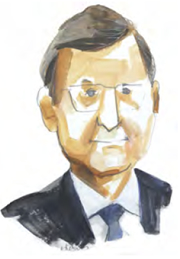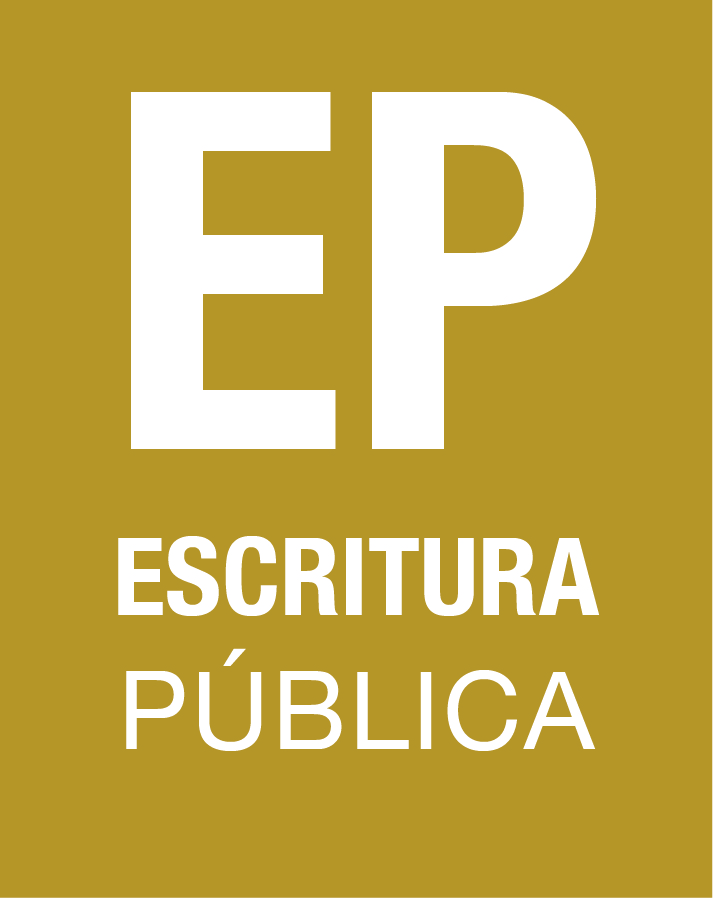EL ESCAPARATE

JOSÉ ÁNGEL MARTÍNEZ SANCHIZ
Presidente del Consejo General del Notariado
President of the Spanish General Council of the Notariat
TRATAMOS EN ESTE NÚMERO de los retos del Notariado europeo ante la digitalización. Pero la cuestión también se puede plantear en sentido inverso, los retos de la digitalización respecto de la seguridad jurídica. Y la respuesta en ambos casos pasa por la necesaria adaptación de la función notarial ante un proceso de aceleración digital vertiginoso.
Enseñaba Betti que contratar es un peligro. La autonomía de la voluntad tiene sus riesgos, pues impone a los contratantes una serie de cargas: la identificación, capacidad o discernimiento y legitimación de la otra parte; la concreción jurídica y física del objeto del contrato, incluida la verificación de los medios de pago; la prestación del consentimiento con conocimiento de causa, así como la previsión de posibles garantías o cautelas para asegurar los efectos pretendidos; y, señaladamente, la legalidad del negocio en el momento de concluirlo. La seguridad jurídica, en la medida en que elimine dichos riesgos o los disminuya al mínimo, cumple la importante función de potenciar la contratación, lo que, en los países de nuestro entorno, se obtiene al asumir el notario las citadas cargas de prudencia y legalidad mediante la autorización del instrumento público.
El notario acepta estas responsabilidades, que gracias a su plasmación documental devienen autenticidades o lo que es lo mismo verdad oficial; prueba plena sobre la que descansa, entre otros extremos, la fiabilidad de los registros públicos.
Todas estas responsabilidades se asumen sobre la base del encuentro personal entre el notario y los otorgantes del documento público. Esto es lo que la técnica notarial denomina unidad de acto, que requiere compartir un espacio común. Pero ese espacio común también puede ser virtual, si el otorgamiento se canaliza por medio de una videoconferencia a través de la sede electrónica notarial, que funciona como una verdadera oficina pública notarial, solo que en un espacio virtual. Esto es perfectamente compatible con la unidad de acto o con el llamado principio de inmediación que admite, junto a la presencia física, la telemática.
El principio de inmediación no sufre lo más mínimo a raíz de un otorgamiento electrónico, que puede y debe aceptarse en todos aquellos casos en los que la naturaleza del negocio lo permita; por ejemplo, en la intervención de las pólizas mercantiles y actos societarios, dejando al margen, sin embargo, los de índole civil de naturaleza inmobiliaria o con obligaciones cruzadas que conllevan la entrega material de cosas y efectos.
Esto supuesto, es muy conveniente que se acoja legalmente esta posibilidad. Se trataría de una reforma legislativa no demasiado complicada y fácilmente efectiva, porque el Notariado, por medio de su centro tecnológico creado hace casi veinte años, tiene ya operativa la necesaria aplicación telemática en su sede electrónica, dotada como es lógico de la máxima seguridad. Por tanto, aplicable tan pronto culmine el obligado proceso legislativo para abrir la sede electrónica notarial, no solo como hasta ahora a las autoridades judiciales, registros y administraciones públicas, sino especialmente a quienes deben ser sus principales beneficiarios, los ciudadanos, de manera que puedan acudir telemáticamente al notario para constituir sociedades o firmar pólizas, así como disponer de su copia electrónica en el móvil.
Es una exigencia que no es que nos imponga Europa, que también, sino la misma realidad de las cosas. En este sentido, la urgencia viene dada por la trasposición de la Directiva de herramientas digitales, que obliga a los Estados miembros a introducir un sistema de constitución a distancia para las sociedades de responsabilidad limitada.
La directiva requiere que se prevea un procedimiento alternativo para la constitución telemática de sociedades, pero con la expresa prevención de no quebrar por ello la seguridad jurídica ni alterar el régimen adoptado tradicionalmente por cada Estado miembro, en particular el basado en la autorización notarial; razón por la que podemos decir sin exageración ninguna que recomienda la escritura pública (artículo 10), que por sí sola reúne los controles que la propia Directiva demanda en el artículo 13 octies, atinentes a la legalidad, capacidad o discernimiento, consentimiento informado, así como la evitación del fraude y del blanqueo de capitales.
En esta misma revista Jens Bormann, presidente del Consejo Federal del Notariado alemán (Bundesnotarkammer), y Massimiliano Levi, director de comunicación del Consiglio Nazionale del Notariato, explican los proyectos alemán e italiano, basados ambos en la videoconferencia a través de la correspondiente sede electrónica notarial. En nuestro caso, la trasposición de la directiva se vería facilitada por hallarse ya desarrollada la pertinente aplicación tecnológica.
Hay que reconocer, en fin, que la digitalización es el tema de nuestro tiempo, un fenómeno complejo, que va más allá de las herramientas tecnológicas, pues la innovación, cuando actúa sobre la información, de algún modo traspasa la materia para penetrar en el ámbito de la inteligencia artificial. Surge entonces la inquietante cuestión de si la máquina está llamada a sustituir nuestro juicio. El futuro no está escrito, pero, sobre la indudable utilidad de los logaritmos, pesa el juicio ético de si la humanidad ha de acabar siendo un factor contable; tal vez, parodiando a Leibniz, «cuando Dios piensa, cuenta». Pero las máquinas, afortunadamente, ni son dioses ni son hombres, sino recursos al servicio de nuestros designios.
Digitalisation with regard to legal certainty
In this issue we address the challenges posed for Europe’s notaries by digitalisation. The question could also, though, be considered the other way round: the challenges for digitalisation with regard to legal certainty. And the answer lies in both cases in the need to adapt the role of notaries in response to a process of digital transformation at breakneck pace.
Betti taught us that signing a contract is perilous. Free will has its risks, since it imposes a series of burdens on the signatories: the identification, capacity or discernment and legitimate standing of the other party; the legal and physical definition of the object of the contract, including verification of the means of payment; the granting of duly informed consent, and provision for any posible guarantees or safeguards to ensure the intended effects; and in particular, the lawfulness of the business at the moment of its conclusion. To the extent that it eliminates such risks, or reduces them to a minimum, legal certainty fulfils the important function of underpinning the contractual process, which in those countries belonging to our tradition is achieved by means of the notary taking on these burdens of prudence and lawfulness, through the notarisation of a public instrument.
The notary accepts these responsibilities, which once they have been set out in documented form become authentic, in other words, the official truth; complete proof on which, among other aspects, the reliability of public registers depends.
All these responsibilities are accepted on the basis of the face-to-face meeting between the notary and those executing the public instrument. This is what notarial practice refers to as a single act, which requires that those acting be present at a shared location. However, this shared location may also be virtual, if the instrument is executed by means of videoconference via the notarial portal, which in truth functions as a public notarial office, but on the virtual plane. This is fully compatible with the concept of the single act, or what is known as the principle of immediacy, which allows for presence to be remote and digital, as well as face-to-face.
The principle of immediacy is in no way undermined by an electronic procedure, which can and must be accepted in all those cases in which the nature of the business would so allow. For example, in the witnessing of commercial deeds and corporate acts, nonetheless setting aside those of a civil nature involving real estate or reciprocal obligations entailing the material handover of items and belongings.
It would be of great benefit to allow this option to be legally applied to such circumstances. The legislative reform would not be particularly complex and could easily be put into practice, since the technology centre of the Notariat set up more than twenty years ago already has the required remote digital application in operation on its online portal, furnished with the utmost security, as one would expect. It could therefore be implemented immediately upon completion of the required legislative process to open up the online a notarial portal not only, as thus far, to court authorities, registers and public agencies, but specifically to those who should be its main beneficiaries, the general public, providing them with remote, digital recourse to a notary in order to incorporate companies or sign deeds, along with access to an electronic copy on their mobile.
It is not a question of this requirement being imposed on us by Europe, although it is, but instead the inherent reality of the circumstances. In this regard, the urgency comes from the transposition of the Directive on digital tools and processes, which obliges Member States to bring in a system for remote incorporation of limited liability companies.
The Directive requires provision to be made for an alternative procedure for the remote digital incorporation of companies, but with the explicit proviso that this must not disrupt legal certainty nor alter the traditional regime adopted by each Member State, in particular where based on notarisation. It would therefore be no exaggeration to state that it recommends a public instrument (Article 10), which in itself fulfils the checks that the very Directive sets out in Article 13h regarding lawfulness, capacity and discernment, informed consent, and the avoidance of fraud and money laundering.
In this same magazine Jens Bormann, president of the Federal Council of the German Notariat (Bundesnotarkammer), and Massimiliano Levi, communications director of the Consiglio Nazionale del Notariato, explain the German and Italian projects, both based on videoconference via the corresponding notarial portal. In the case of Spain, transposition of the directive would be facilitated by the fact that the technological application in question has already been developed.
We must, in short, acknowledge that digital transformation is the issue of the day, a complex phenomenon which goes beyond technological tools, since when innovation affects information, it in some way transcends this sphere, and enters the realm of artificial intelligence. There then comes the troubling question of whether machines are destined to replace our judgment. The future is not written, but the unquestionable usefulness of logarithms is subject to an ethical judgment as to whether humanity should ultimately be a countable factor, perhaps in parody of Leibniz: ‘when God thinks, he counts’. Machines, though, are fortunately neither gods nor humans, but resources at the service of our wishes.



